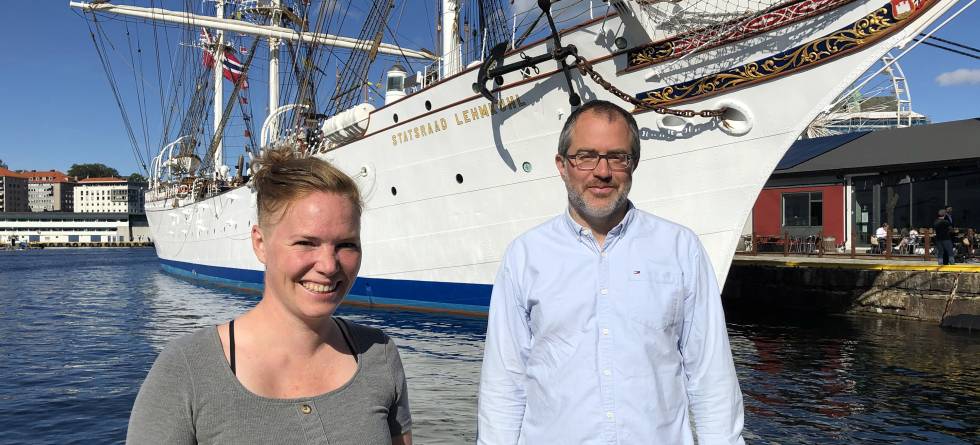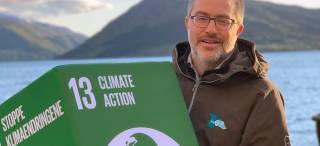The Bjerknes Centre for Climate is one of several institutions when Statsraad Lehmkuhl, Norway's largest square-rigged sailing vessel, travels around the world for the very first time.
Sustainability is key, and the University of Bergen and the Bjerknes Centre has taken responsibility for courses for parts of the voyage around the globe. The Institute of Marine Research is also part of the team, with special responsibility for instruments aboard.
Auditorium on deck
Professor Kerim Nisancioglu brings students to a cross-disciplinary course on climate and sustainability for a three-week cruise in the Caribbean.
"The goal is connecting Jamaican, American and Norwegian students in a common understanding around causes and consequences of climate change. The course will have a specific focus on the Caribbean, since this is where we're sailing together," says Nisancioglu.
Many institutions are cooperating on this course, with University of the West Indies on Jamaica, the American institutions University of Texas, Austin og Scripps Institution of Oceanography. A partnership is also to be formalised with Harvard University and Woods Hole Oceanographic Institution.
Students will have online classes from all these institutions in autumn 2021, before they meet aboard the sailing vessel for workshops and courses. The course is based on the popular sustainability course SDG 213 developed by Nisancioglu.
Students will also be crew aboard, and will take part in the sailing in addition to their classes between Curacao and Havana.
Data from all oceans
When Statsraad Lehmkuhl sets sail, the ship will also bring along advanced measuring instruments.
Meike Becker, researcher at the Geophysical Institute and the Bjerknes Centre, is responsible for the instruments aboard many ships giving data of CO2 concentration in the sea surface.
The research infrastructure aboard these ships serve unique data, but there are still oceans where there are few observations the past years, like the Indian Ocean and the southern Atlantic and Pacific Ocean.
"The voyage will go through ocean areas where there is little data. The new observations will be very useful for knowledge on how the ocean takes up CO2," says Becker.
Around half of the CO2 emissions every year is taken up by the ocean and land. The exact proportions and to what degree this varies from year to year, and how this is connected to the climate, is still an unknown in research.
"To us, this is our first voyage around the world, a very exciting expedition," says Professor Tore Furevik, Director of the Bjerknes Centre for Climate Research.
Update August 30: Aruba changed to Curacao, due to final decisions.


